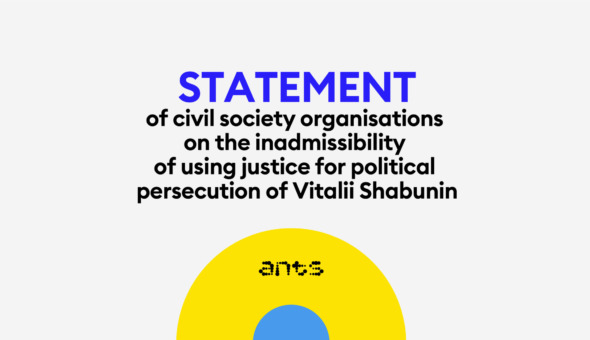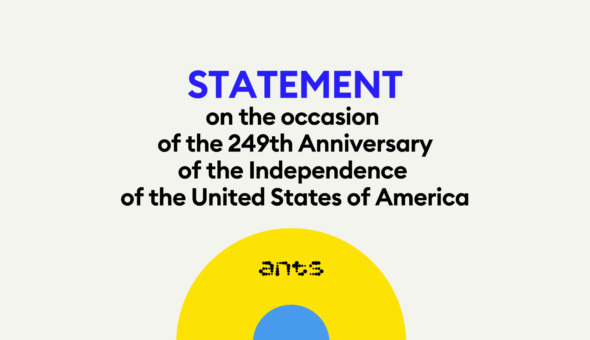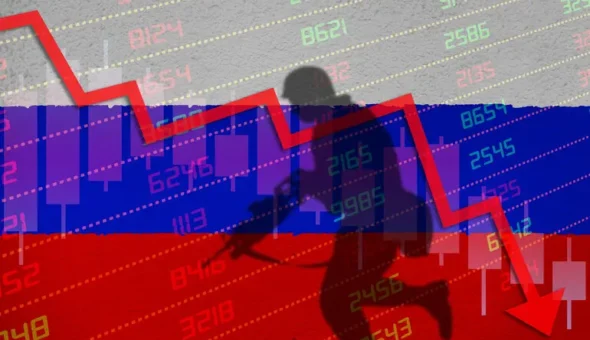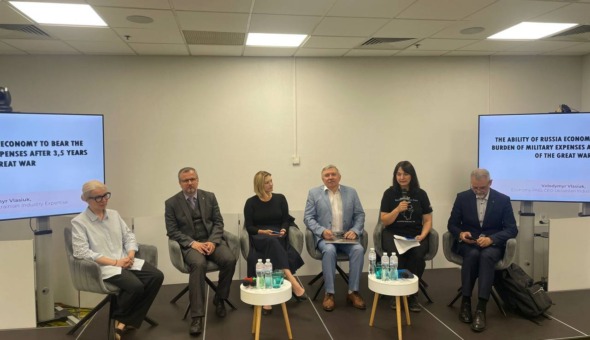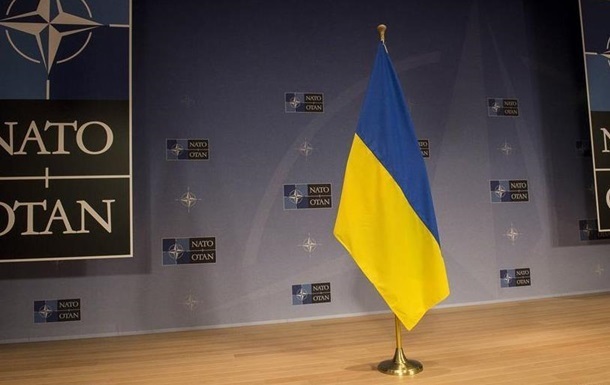
The NATO Summit in Vilnius did not become the venue for a political invitation to Ukraine to join the Alliance, despite significant efforts by the public, diplomats, and politicians to explain the importance of this step primarily for the members of this military-political union.
It must be stated that the key partner, the USA, did not support such a step, and in the public realm, the concepts of “political invitation” and “membership” were interchanged in order to justify this decision as too risky and premature. Ukraine failed to convey its own position in a timely manner and at the appropriate level that the “political invitation” is only one of the steps on the way to membership, primarily at the public level and in the mass media, and that it is primarily beneficial to the Alliance itself.
As a result, NATO members actually identified two tracks of interaction with Ukraine: political and practical (armaments, material, and financial resources) support at the current stage within the framework of obligations to help protect independence, sovereignty, and territorial integrity against unjustified full-scale russian aggression, as well as a political dialogue about the prospects of future membership when “the members of the Alliance agree and the conditions are met.”
Such a move by NATO complicates the lives of both the politicians of the member states and Ukraine, as it is necessary to continue to actively work on maintaining public support for multilateral assistance while at the same time refusing to use a simple and clear argument: “Ukraine is a future NATO partner” in view of the political invitation and needs to “achieve interoperability and carry out a number of democratic and security reforms” in the face of full-scale russian armed aggression.
As Hanna Hopko, head of the board of the National Interests Advocacy Network “ANTS” noted, for Ukraine, national unity is becoming more important than ever in the war of attrition, “the synchronized play of the national team (politicians, diplomats, business, and the public) to achieve results in both directions, planning information campaign based on clear priorities and coordination of efforts of all interested parties. Only such systematic work before the next NATO summit in Washington will give Ukraine a chance to receive a political invitation.
Alyona Hetmanchuk, director of the “New Europe” analytical center, noted that Ukraine ran out of time to synchronize its own positions and convey them to the allies before the NATO summit in Vilnius. In many capitals of NATO member states at the beginning of 2023, on the one hand, russian threats of direct conflict with the Alliance and nuclear war prevailed if decisions were made regarding the accession of Ukraine, and on the other hand, numerous prejudices about corruption, unreformed state institutions, the weakness of the judiciary, the law enforcement system, etc. Further dialogue at various levels, in particular active advocacy campaigns of public organizations, helped to gain the support of a large part of the member states of the Alliance, and this work should be continued, strengthened, and scaled up.
The decisions of the NATO summit in Vilnius actually left a significant number of politicians, government officials, and public figures in many member states dissatisfied. This creates the basis for further advocacy of Ukrainian goals and achieving support in decision-making centers that are currently doubtful or opposed. At the same time, all interested parties should take note of the fact that Vilnius became the first important advocacy step of Ukraine, where the members of the Alliance objectively threw all their efforts to promote the membership of Sweden, and for our country, it was expected to confirm the readiness to provide comprehensive support in the fight against the russian aggressor.
Alyona Hetmanchuk emphasized that one of the important challenges for Ukraine is the fight against the exchange of concepts that is currently present in the public discourse, in particular regarding invitation and membership, as well as regarding “security guarantees”, “security obligations”, or even “security assurances” from the side of Ukrainian partners. Especially the latter can be very dangerous for Ukraine, since the decisions and declarations of the G7 countries adopted at the summit can be interpreted very broadly and need to be detailed in bilateral agreements with partners who have publicly expressed their readiness to provide such “security guarantees” as Ukraine expects.
Michael Gonchar, president of the analytical Centre for Global Studies “Strategy XXI”, emphasized that NATO does not have the courage to seriously approach the assessment of the real situation and potential consequences of the russian-Ukrainian war. In particular, since the first days of the full-scale invasion, russia has been using nuclear blackmail against Ukraine and the Alliance; that is, a nuclear state is blackmailing our state and the whole world because of the threat of an accident at nuclear power facilities or the use of nuclear weapons. In this way, it effectively deters NATO from more decisively supporting Ukraine, while at the same time quickly approaching the “red line” when blackmail can turn into nuclear terrorism. The fact that russia is capable of such steps is confirmed by the cases of purposeful detonation of the Kakhovka HPP with a man-made catastrophe of a regional scale and attacks on military facilities of NATO member states (drones and aircraft), in response to which only another “concern and conviction”. The answer to russian nuclear blackmail should be a public raising of the issue of denuclearization of russia as a state that does not meet the criteria of a permanent member of the UN Security Council and the owner of one of the largest nuclear arsenals in the world.
Ukraine has no choice but to take advantage of the opportunities identified by the NATO summit in Vilnius and seek more favorable solutions, according to the executive director of the Foreign Policy Council “Ukrainian Prism”. Ukraine should join the efforts of those who are able to generate analytics, solutions, and recommendations and those who have skills and communication mechanisms at the level of decision-making centers in partner states. The main directions of efforts at the moment should be an advocacy campaign to obtain a political invitation to the Alliance, fill in the practical content and legal framework of the Ukraine-NATO Council, defined in terms of the time of achievement and the size of the package of obligations within the framework of the annual national program, as well as the transformation into effective interstate bilateral or multilateral agreements of publicly announced “security assurances”. Ukraine’s active position, ambitious and at the same time balanced packages of proposals to each of the partner parties, reasonable time frames, and systematic work at the level of politicians, diplomats, and the public should become the drivers of Ukraine’s movement to receive a political invitation and further work on the way to full membership in NATO. At the same time, the synergy of efforts with the European integration course can become an additional tool that will help in the dialogue with NATO and contribute to the integration of Ukraine into the security architecture of Europe.
Daria Kaleniuk, executive director of the Anti-Corruption Action Centre, emphasizes that the consequences of the NATO summit in Vilnius are dictated primarily by the United States’ unwillingness to take decisive steps regarding Ukraine’s Euro-Atlantic movement, given the lack of a clear vision of its impact on geopolitical processes in Europe and the world. Powerful russian propaganda and long-term influence on think tanks in the world contributed to the emergence of numerous ideas about this country that, in fact, have no real basis, in particular regarding the reality of the nuclear threat. Ukraine should, in every possible way, promote research in Western analytical centers and convey to politicians and government officials the groundlessness of their prevailing ideas about russia.
Ukraine has the right and even the obligation to ask partners questions about their vision of the end of the russian-Ukrainian war, which bears signs of genocide and is already widely interpreted in russia as a struggle against NATO, to explain the futility and threats of a temporary freeze, as it happened in 2015, for the security of Ukraine and the entire Alliance.
International law expert Roman Son notes that the results of the NATO summit in Vilnius confirm the differences between the perceptions of putin and russia between Ukraine and some members of the Alliance, and such states as the USA and Germany. The latter do not perceive the russian-Ukrainian war as a geopolitical threat to the democratic world at the level of Hitler’s Germany, and the need for a decisive and uncompromising struggle. From the point of view of international law, Ukraine’s allies should make an ultimatum to russia to cancel its constitutional changes regarding the inclusion of certain Ukrainian territories and not to push our state into negotiations, even from the point of view of the so-called “strong position”. In this context, delaying the issue of Ukraine’s accession to NATO through the introduction of even temporary “security guarantees” can give Ukraine only certain types of material and technical assistance but will not provide full-fledged, including nuclear, protection against the existential threat from russia.
Consolidation of efforts on the external dimension does not mean that Ukraine does not have homework. The fight against corruption is not only a convenient excuse for Western partners for their reluctance to take decisive steps towards Ukraine in the matter of membership in NATO and the EU, but also one of the cornerstones of Ukraine’s ability to survive the russian-Ukrainian war. One of the most important directions is overcoming corruption and incompetence in the procurement of defense departments in Ukraine. It is also very important to restore the effectiveness of those instruments of control over the integrity of civil servants that existed before the full-scale invasion, in particular, electronic declaration.
Therefore, in order to survive, Ukraine must show an example of national unity in advancing the issue of NATO membership, be a driver of research on the futility of russian narratives about the importance of Russia in global geopolitics, the nuclear threat, etc., and also consistently move along the path of reforms and uncompromisingly fight corruption.
The publication was made within the MATRA program with the support of the Embassy of the Kingdom of the Netherlands in Ukraine. The opinions expressed are those of the author(s) only and should not be construed as reflecting the official position of the Embassy.
